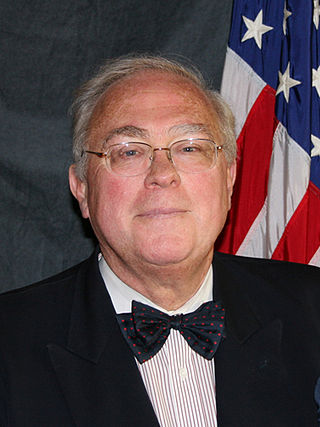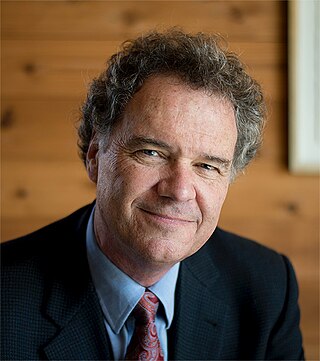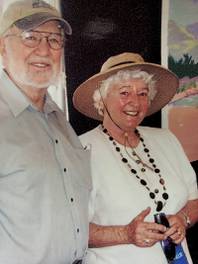
The University of California, Berkeley is a public land-grant research university in Berkeley, California, United States. Founded in 1868 and named after the Anglo-Irish philosopher George Berkeley, it is the state's first land-grant university and is the founding campus of the University of California system.

The University of California, Davis is a public land-grant research university in Davis, California, United States. It is the northernmost of the ten campuses of the University of California system. The institution was first founded as an agricultural branch of the system in 1905 and became the sixth campus of the University of California in 1959.

Alfred Louis Kroeber was an American cultural anthropologist. He received his PhD under Franz Boas at Columbia University in 1901, the first doctorate in anthropology awarded by Columbia. He was also the first professor appointed to the Department of Anthropology at the University of California, Berkeley. He played an integral role in the early days of its Museum of Anthropology, where he served as director from 1909 through 1947. Kroeber provided detailed information about Ishi, the last surviving member of the Yahi people, whom he studied over a period of years. He was the father of the acclaimed novelist, poet, and writer of short stories Ursula K. Le Guin.

Richard Lyman Bushman is an American historian and Gouverneur Morris Professor Emeritus of History at Columbia University, having previously taught at Brigham Young University, Harvard University, Boston University, and the University of Delaware. Bushman is the author of Joseph Smith:Rough Stone Rolling, a biography of Joseph Smith, progenitor of the Latter Day Saint movement. Bushman also was an editor for the Joseph Smith Papers Project and now serves on the national advisory board. Bushman has been called "one of the most important scholars of American religious history" of the late-20th century. In 2012, a $3-million donation to the University of Virginia established the Richard Lyman Bushman Chair of Mormon Studies in his honor.

Kevin Owen Starr was an American historian and California's state librarian, best known for his multi-volume series on the history of California, collectively called "Americans and the California Dream."

David Brion Davis was an American intellectual and cultural historian, and a leading authority on slavery and abolition in the Western world. He was a Sterling Professor of History at Yale University, and founder and director of Yale's Gilder Lehrman Center for the Study of Slavery, Resistance, and Abolition.
The Caughey Western History Association Prize is given annually by the Western History Association to the best book published the previous year on the American West. The winner receives $2,500 and a certificate.

Edward Lynn Ayers is an American historian, professor, administrator, and university president. In July 2013, he was awarded the National Humanities Medal by President Barack Obama at a White House ceremony for Ayers's commitment "to making our history as widely available and accessible as possible." He served as the president of the Organization of American Historians in 2017–18.

Blood of the Prophets: Brigham Young and the Massacre at Mountain Meadows (2002) by Will Bagley is a history of the Mountain Meadows massacre. The work updated Juanita Brooks' seminal history The Mountain Meadows Massacre, and remains one of the definitive works on the topic.

Claude Nelson Warren was a California Desert anthropologist and specialist in early humans in the Far West and was instrumental in defining the San Dieguito and La Jolla cultural complexes. His Ph.D. dissertation proved that Native Americans lived in the San Diego coastal area 10,000 years ago, much earlier than previously thought. He also had an interest in the history of anthropology.

James F. Brooks is an American historian whose work on slavery, captivity and kinship in the Southwest Borderlands was honored with major national history awards: the Bancroft Prize, Francis Parkman Prize, the Frederick Jackson Turner Award and the Frederick Douglass Prize. He is the Gable Professor of Early American History at the University of Georgia, and Research Professor Emeritus of History and Anthropology at the University of California, Santa Barbara, where he serves as senior contributing editor of the journal The Public Historian
Daniel T. Rodgers is an American historian. He is an emeritus professor at Princeton University, and the author of several books.
Charles Capper was an American historian known for his work on Transcendentalism and his biographies of Margaret Fuller.
Louis Rudolph Harlan was an American academic historian who wrote a two-volume biography of the African-American educator and social leader Booker T. Washington and edited several volumes of Washington materials. He won the Bancroft Prize in 1973 and 1984, once for each volume, and the 1984 Pulitzer Prize for Biography or Autobiography for the second volume.

Elizabeth von Till Warren was an American historian and preservationist. She had expertise in the history of water development in the Mojave Desert and the Las Vegas Valley in particular. She also had expertise in the historical route of the Old Spanish Trail in Southern Nevada.
Isabel Patricia Montañez is a paleoclimatologist specializing in geochemical records of ancient climate change. She is a distinguished professor and a Chancellor's Leadership Professor in the department of earth and planetary sciences at University of California, Davis. As of 2021, Montañez is the director of the UC Davis Institute of the Environment.
Dell Thayer Upton is an architectural historian. He is emeritus professor at the department of art history at University of California, Los Angeles, and Professor Emeritus of Architecture at the University of California, Berkeley. He had taught previously at the University of Virginia.

Anne Farrar Hyde is an American historian, author, and professor, specializing in the U.S. West and comparative North American history. Hyde wrote award-winning books such as Empires, Nations, and Families: A History of the North American West, 1800–1860 and An American Vision: Far Western Landscape and National Culture, 1820–1920. Her most recent book, Born of Lakes and Plains: Mixed Descent Families and the Making of the American West, 2021, is published by W. W. Norton.
W. Turrentine "Turpie" Jackson was an American professor of history, specializing in Western U.S. history.

David Biale was an American historian specializing in Jewish history.













